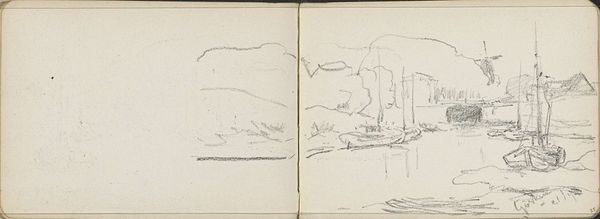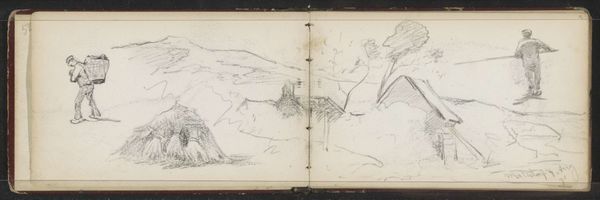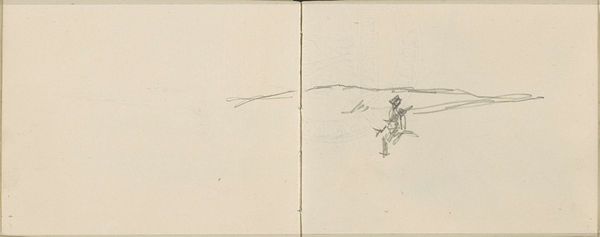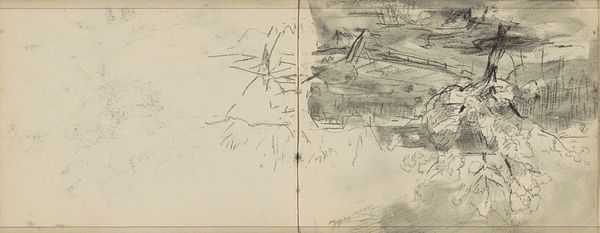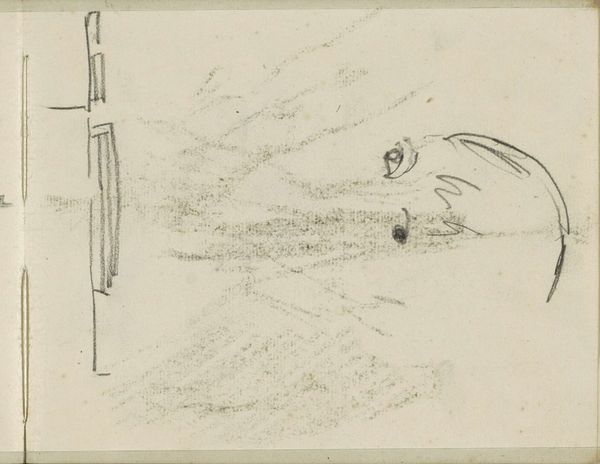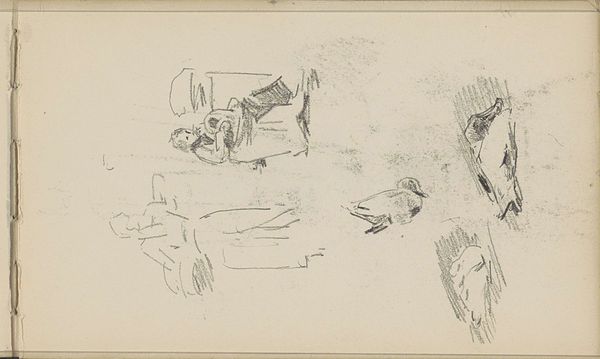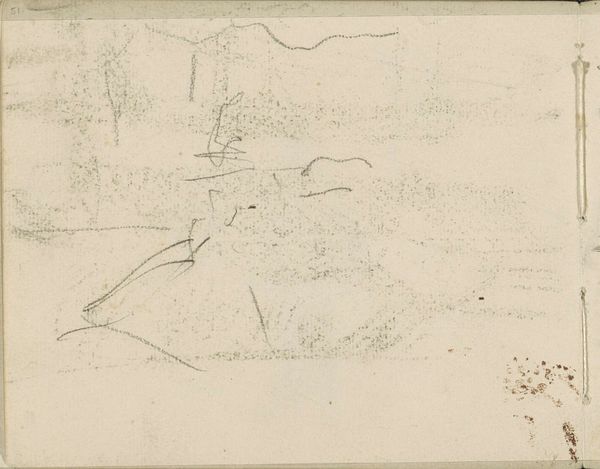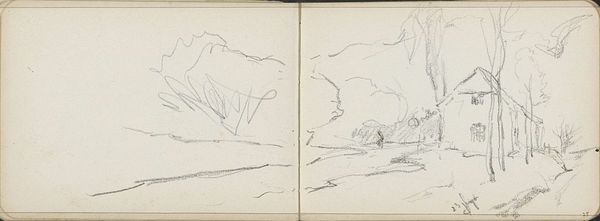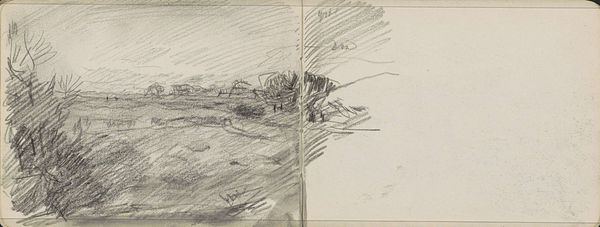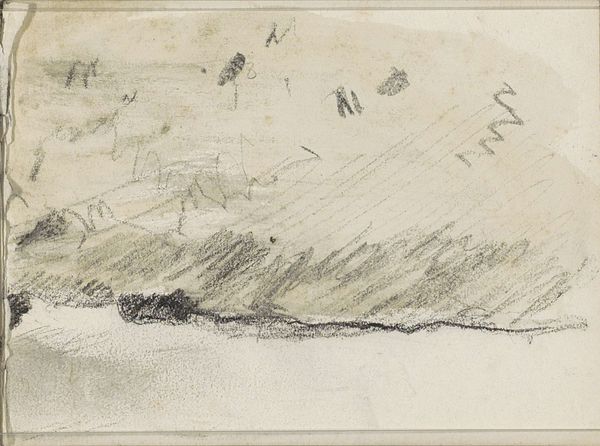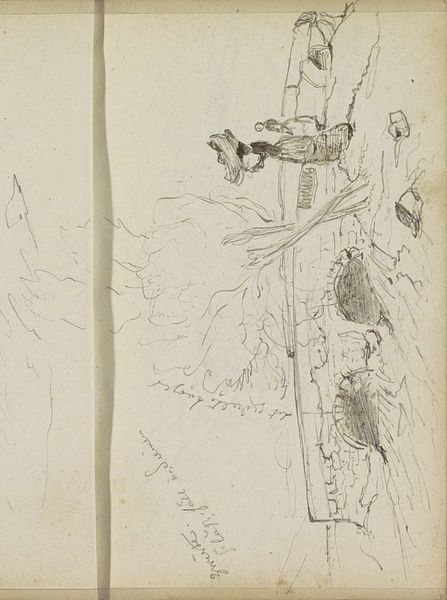
drawing, pencil
#
drawing
#
amateur sketch
#
light pencil work
#
pen sketch
#
incomplete sketchy
#
landscape
#
personal sketchbook
#
sketchwork
#
pen-ink sketch
#
pencil
#
sketchbook drawing
#
sketchbook art
#
realism
#
initial sketch
Copyright: Rijks Museum: Open Domain
Editor: This is Johan Antonie de Jonge’s “Duinlandschap, mogelijk met de watertoren te Scheveningen,” dating from around 1884 to 1927. It’s a pencil drawing, very light and airy. The quick, sketchy lines give it a sense of immediacy, like a fleeting impression. What stands out to you in this piece? Curator: The sketchiness, as you pointed out, is quite evocative. It feels less like a depiction of a specific place, and more like an echo of a memory of a place. Consider the near-absence of detail – how that absence invites our own memories, our own experiences of similar landscapes, to fill the void. Does it conjure up a specific place in your mind? Editor: Not a specific place, but it reminds me of childhood holidays by the sea, maybe because the style is so free and unrestrained. I also wonder if the tower holds a particular meaning? Curator: Exactly! The tower, almost like a sentinel, suggests a connection to progress, modernity, yet is rendered in the same fleeting strokes as the dunes, linking progress with the enduring landscape. In that time, the symbol of progress versus nature. It also speaks of the ever-changing relationship between humanity and the natural world. Does the tower appear stable to you? Editor: No, not really. The whole drawing has this delicate, almost dreamlike quality, as if it could all vanish in a moment. Curator: And in that ephemerality lies a potent truth about memory itself, doesn't it? We rarely remember things in sharp focus. What remains are often fragments, impressions, the echoes of what once was. The symbols of memory that give you a vague feeling and the emotional truth of what was there. Editor: So, it’s less about the place itself, and more about how we remember places, the feelings they evoke. Curator: Precisely! De Jonge has captured something essential about how we relate to the landscape, to time, and to our own personal histories. That interplay of personal and universal symbolism… it’s rather profound, don't you think? Editor: I agree! I will never look at sketches the same way. They can evoke feelings stronger than a polished landscape. Thanks!
Comments
No comments
Be the first to comment and join the conversation on the ultimate creative platform.
